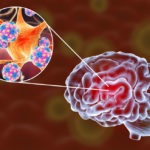New research published in the peer-reviewed journal Memory & Cognition found that testing yourself during studying sessions increased memory performance and the ability to make inferences.
Initiated by a group of researchers at the University of Illinois, the study included two experiments examining memory and inference.
“In the two experiments reported here, we evaluated inference and memory for members of natural categories over time,” said Jessica Siler, the study’s co-author. “Rote memory and generalization were tested shortly after the study phase and again after varying delays.”
Throughout three phases, the research group tested memory and inference by introducing the participants to images of birds.
In the first phase, as the images of the animals were shown, the participants learned to which families they belonged to. For the second phase, the participants studied half of the families the animals belonged to through testing and restudy. In the third phase, tests were administered to examine memory performance of the animals.
Over a span of close to one month, or 25 days, to be exact, researchers compared the memory and inference of the participants. According to their findings, testing oneself during studying was correlated with improved inference and considered beneficial for memory performance.
“Results from both experiments indicate that retrieval practice does indeed enhance inference for novel members of previously learned categories, and that the benefits are maintained over the duration of our experiments—up to 25 days,” Siler stated.
“These results indicate that although testing does not appear to reduce forgetting, it is a potent means of enhancing inference, and the benefits to memory and inference are long lasting.”


